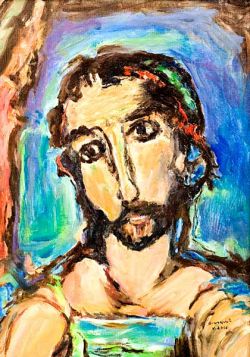Work and poverty
Brother, sister, your poverty according to the Gospel means sharing everything you own and living, as much as you can, from one day to another, in a provisional way: this will allow you to follow Christ who emptied himself completely, and to have in yourself the attitude of the one who, though he was rich, made himself poor among us. Your poverty will mean reducing your life, day after day, to what is essential: this daily work of simplification will make you one of the poor of Yhwh.
Brother, sister, your poverty according to the Gospel means sharing everything you own and living, as much as you can, from one day to another, in a provisional way: this will allow you to follow Christ who emptied himself completely, and to have in yourself the attitude of the one who, though he was rich, made himself poor among us. Your poverty will mean reducing your life, day after day, to what is essential: this daily work of simplification will make you one of the poor of Yhwh.
Poverty for you will also mean working like everyone else. You will work because the apostles and fathers worked for a living, because you are not allowed to make others serve you, because through your work you collaborate in the work of creation accomplished by the Wisdom of God, and because you must demonstrate your solidarity with all people by working with them.
(Rule of Bose 21; 23-24)
Work within the community (agriculture, production of jam, carpentry, printing and publishing for the community’s Edizioni Qiqajon, ceramics, writing of Biblical commentaries, translation, etc.) as well as work outside the community (teaching, factory work, hospital work), allows the community to live on the basis of its own earnings as everyone else does. A member of the community receives and manages all income, allowing the community to live a radical degree of common ownership. Everyone in the community participates in manual work, including very simple tasks – cooking, washing dishes, cleaning guest rooms and community living spaces – as a way of serving brothers, sisters and guests.
Poverty, which the community lives first and foremost through its work, is understood as a complete sharing of both material and spiritual benefits, as an emptying of self and reduction of each person’s needs to the essential, as a way of refraining from “clinging” to any person or thing, and as means of simplifying one’s existence in order to make possible a greater interior unity. However, poverty is not lived in a legalistic way in the community, nor does it imply in any way disdain for creation. On the contrary, the community seeks to make use of and give thanks for the gifts of creation, in such a way that their inherent beauty and goodness is brought to light. Creation, as the apostle Paul explains, is willed and sustained by God, and is awaiting liberation in order to share in the freedom of the children of God (cf. Rom. 8:21).
